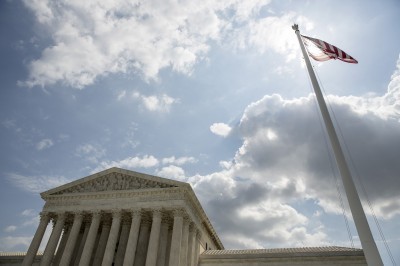-
Tips for becoming a good boxer - November 6, 2020
-
7 expert tips for making your hens night a memorable one - November 6, 2020
-
5 reasons to host your Christmas party on a cruise boat - November 6, 2020
-
What to do when you’re charged with a crime - November 6, 2020
-
Should you get one or multiple dogs? Here’s all you need to know - November 3, 2020
-
A Guide: How to Build Your Very Own Magic Mirror - February 14, 2019
-
Our Top Inspirational Baseball Stars - November 24, 2018
-
Five Tech Tools That Will Help You Turn Your Blog into a Business - November 24, 2018
-
How to Indulge on Vacation without Expanding Your Waist - November 9, 2018
-
5 Strategies for Businesses to Appeal to Today’s Increasingly Mobile-Crazed Customers - November 9, 2018
SCOTUS Rules Judge-Centric Florida Death Penalty Law Unconstitutional
“By striking down Florida’s capital punishment scheme, the Supreme Court restored the central role of the jury in imposing the death penalty”, said Cassandra Stubbs, director of the ACLU’s Capital Punishment Project.
Advertisement
The Supreme Court has thrown out a verdict in Florida which sentenced Timothy Lee Hurst to death because the judge first decided he was eligible for the death penalty, rather than that decision being made by a jury. The high court has ordered a new sentencing hearing for Hurst. Florida State University legal scholar Mark Schlackman said it’s going to take a while to unravel the impact for people now on Death Row, and whether it applies to just one case.
The Constitution means for “a jury, not a judge, to find each fact necessary to impose a sentence of death, ” Sotomayor wrote. But the court went on to say that it was explicitly reversing those earlier decisions because, it said, “the underpinnings” of those rulings have been “eroded by time and subsequent developments in constitutional law”. However, most of the state’s prisoners will not be affected because their appeals have run out or their convictions were based on indisputable aggravating circumstances.
While the Florida Supreme Court and Florida legislature work to figure out changes to the state’s death penalty sentencing process, Duval prosecutors don’t tend to ease any plans to seek the punishment itself. Hurst was convicted of first-degree murder at trial. The already six-year-old case has been temporarily put on hold pending the Hurst ruling.
“It’s a mess”, said Sebring defense attorney William Fletcher.
Michael Radelet, an expert on the Florida death penalty, said the bottom line after Tuesday’s ruling is uncertainty. “A jury’s mere recommendation is not enough”. The judge makes the final sentencing decision, giving “great weight” to the jury’s recommendation.
But beyond legislation promptly addressing the court’s concerns in this case, the Legislature should order a comprehensive review of the entire death penalty process, as has been recommended by the Florida Bar Board of Governors. “This right required Florida to base Timothy Hurst’s death sentence on a jury’s verdict, not a judge’s factfinding”, Sotomayor wrote.
“I’m continuing to review that [Hurst] case to determine whether or not, in view of this ruling, I can proceed on the cases that are pending in the 1st Circuit, pre-trial, with regard to the death penalty”, said Eddins. The likely result will be many more death row inmates returning to court for resentencing and potentially years of additional delays in executions.
Justice Alito dissented with the majority judgment and said ‘it defies belief to suggest that the jury would not have found the existence of either aggravating factor if its finding was binding. The Court sent back to state courts the question whether the flaw in the sentencing procedure was a “harmless error” – that is, whether Hurst would have been sentenced to death even if Florida had left the decision exclusively to the jury.
Advertisement
One final but crucial point worth mentioning: Tuesday’s decision casts grave doubt on the constitutionality of Alabama’s death penalty scheme, too.





























